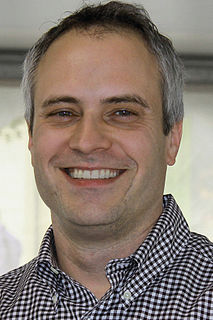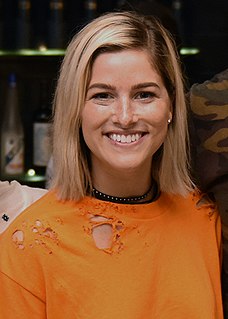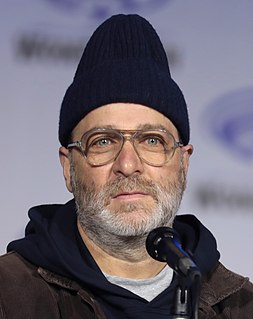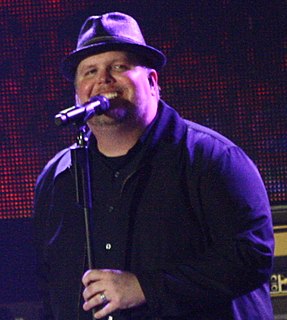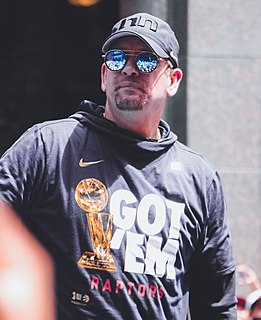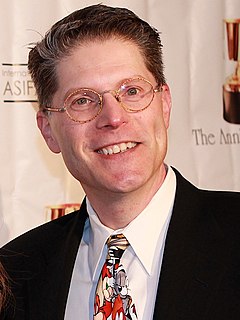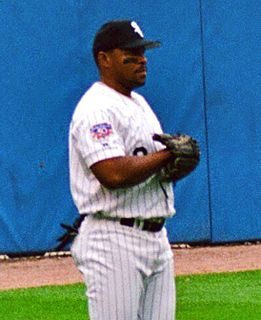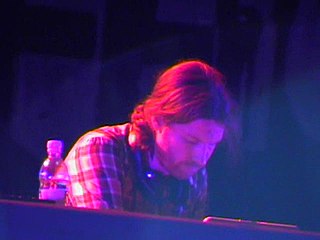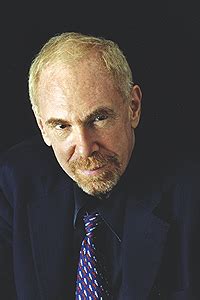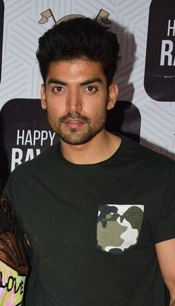A Quote by Demi Lovato
I was judgmental of artists who were exploring their sexuality, and I thought, Why are they doing that? They don't have to. They've got a good voice.
Related Quotes
I think what really separates artists from the rest of the world is that artists feel like they have permission to keep exploring and expressing their process. Most people censor that because they don't think it's good enough. Everything is measured against this patriarchal hierarchy of value, as if one person's singing voice is more important than another's.
Voice actors I used to know who were starting out in comedy were guys who did a lot of voices. They were usually comedy actors who developed their comedy by doing tons of impressions and voices that were usually very funny. And I never did any of that, so that's, I guess, why I don't consider myself a voice actor.
We have jokingly said if you've got good hair, can sing and know three chords, you can lead worship at First Baptist Houston or wherever. But that's kind of scary, putting somebody on stage just because they have a good voice. Do they know theologically and spiritually what they're saying and why they're doing it?
When I first came to New York, in the '70s, artists were certainly divided about the Andy Warhol persona, and about the work. I thought it was utterly cool - I thought the Factory was utterly glamorous - but there were a lot of artists I really admired and respected who were older that kind of dismissed it, couldn't get it, and felt that there was a lack of seriousness about it.
There were so many Cuban-Americans upset that we were going to Cuba and I was curious to see why they were so angry, and anti-Castro. I found out as soon as we got there. The people were treated terrible. The conditions were terrible. I can see why people risk their lives and limbs to get out. (Fidel Castro) lives like a king and won't help anybody, and has everybody scared to death. Nobody lives a normal life. It was still a good experience, but I thought we should just play that one game.
The Voice did not consider itself a conventional magazine. It took me awhile to realize that it was named The Voice for a reason. They wanted voices. At the time, good magazine stories were still believed to be written in the third person based on the false belief they were more objective. Of course some conventional stories require third person, but in the really interesting stories - the ones I got do to at The Voice and Esquire - were about subjectivity, subjectivities.
I think the entrepreneurial activities that make art visible and attractive are what lure people into the amusement park that SoHo has become or that Bushwick or Williamsburg has become. It's not that outsiders come to an area because they hear artists are living there. A lot of people came who were not that interested in living with artists, but they were interested in living like artists and socializing the way that they thought artists socialized.
My mom thought I might be good for voiceover. She thought I had a cute voice, so maybe I could do a cartoon or something. And while we were looking into that, we also thought I should get into theater acting, so I tried it and the first audition I went on, I booked it. And it kind of just snowballed from there.


